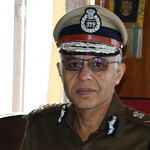A day after the horrific attack in Kashmir’s Pulwama that killed at least 37 CRPF personnel, Narendra Modi government withdrew ‘Most Favoured Nation’ status for Pakistan, in place since 1996. PM Modi also added that the perpetrators will have to pay a big price.
ThePrint asks: Revoking Pakistan’s MFN status: Proportionate reply or Modi exploring diplomatic steps first?
Merely withdrawing Pakistan’s MFN status totally inadequate response
 Kanwal Sibal
Kanwal Sibal
Executive council member, VIF, and former foreign secretary
India’s response to the Pulwama attack has to be robust. Pakistan continues to stoke fire in Jammu and Kashmir. Its foreign minister spoke directly to the separatists in J&K, ignoring India’s protests and it has launched a new campaign against so-called human rights violations in the state.
Jaish-e-Mohammed (JeM) has conducted the latest attack as the video released of the suicide bomber shows. Pakistan and China continue to protect the JeM chief in the UN.
Merely withdrawing Pakistan’s MFN status would be a totally inadequate response. It would give the impression that we have no meaningful options despite contingency planning to respond to a major terrorist attack, which the Pulwama attack is.
In any case, bilateral trade between India and Pakistan is limited. Our response has to change. The government should withdraw the security protection provided to separatists and mainstream Kashmiri politicians at state expense; Masood Azhar’s case for designation as a terrorist should be pushed again in the UN; the FATF should be briefed; some major retaliation should take place across the LoC; the Kartarpur Corridor talks should be suspended; and, finally, Pakistan’s conduct on terrorism should be specifically linked to the future of the Indus Water Treaty.
Rhetoric and rancor against Pakistan will not help India achieve peace in Kashmir
 Salman Bashir
Salman Bashir
Former foreign secretary of Pakistan, and former high commissioner of Pakistan to India
The Pulwama attack on the CRPF once again underscores that occupied Kashmir remains a troubled zone. The human toll due to conflicts in Kashmir is truly atrocious. Violence is not an answer to any problem.
Killings and maiming of all sorts must end. Kashmiris must be consulted and their fundamental rights restored and respected. The three parties in the Kashmir dispute are primarily the Kashmiri people, Pakistan and India. A three-way consultative process is required to initiate steps to calm the situation.
Rhetoric and rancor against Pakistan will not help. The root cause of the Kashmiri alienation needs to be addressed. The Indian decision to step up its policy to isolate Pakistan shows a negative mindset and is bereft of reason. The problems of India in Kashmir are of its own making.
Accusations against Pakistan cannot conceal the deeper issues that continue to bleed Kashmir.
The decision to withdraw most favored nation status is irrelevant to the issues at hand. India needs to realise that its policies and attitude towards its neighbours is destroying harmony and prospects of cooperation in South Asia. All issues can only be resolved through constructive talks. Of course, all kinds and manifestations of terrorism are condemnable.
Diplomatic option was successfully used by Vajpayee govt during Kargil & to corner Pakistan in 2003-2004
 Avinash Mohananey
Avinash Mohananey
Former IB Officer
The nation is seething with anger. The demand for retaliation against Pakistan after high profile attacks is not new. The same has been deliberated upon and considered by various governments at the Centre for decades after every major strike by Pakistan-based terror groups.
Let us take a long, hard look at the options available to India. The country has not seen our covert capability and a ground conflict by way of limited war or cold start. Wars have serious implications for both countries in terms of human and economic cost.
Withdrawing the MFN status, which India gave to Pakistan unilaterally, can only convey our anger without really debilitating Pakistan’s economy, which is already in dire straits. An economist can perhaps say who this step will hurt, Pakistan or India.
That leaves India with the option of using international leverage, which has less visibility and immediacy, but certainly is more effective. The diplomatic option was successfully used by the Vajpayee government during the Kargil conflict in 1999 and subsequently to corner Pakistan on infiltration in Kashmir in 2003-2004. It was international support post-Mumbai attacks that helped India isolate Pakistan.
India needs to remind the US, Russia and other world leaders that just walking away from the conflict after creating a mess is not a solution. The combined strength of the international community is needed to stem the rot that has been afflicting this region.
Holding Pakistan responsible for growing militancy in Kashmir may not be helpful
 Zahid Hussain
Zahid Hussain
Author and analyst
The timing of the suicide attack on a convoy of Indian paramilitary forces in Kashmir is ominous. With the general elections just months away, the reaction from the Modi government was predictable. As responsibility for the attack was claimed by Jaish-e-Muhammad, the finger is conveniently being pointed towards Pakistan despite the fact that the attacker is a homegrown militant.
Led by Maulana Masood Azhar, the JeM was outlawed by Pakistan in 2002. Since then, it has split into several small groups operating secretly. Jaish militants have also been involved in many terrorist attacks in Pakistan, including two assassination attempts on former president General Pervez Musharraf in 2003. But the capacity of the group to launch such a devastating cross-border attack is questionable.
It is evident that most Kashmiris involved in militant attacks are homegrown and not slipping across the border from Pakistan. It may be true that the Jaish has developed a strong network inside Kashmir and this has turned into a political pressure cooker. According to Indian media reports, more and more Kashmiris are turning to militancy because of suppression of democratic rights and growing use of force.
Surely such dastardly attack must be condemned in the strongest terms. But holding Pakistan responsible for growing militancy in Kashmir may not be helpful. The latest attack in Kashmir reinforces the need for the two countries to increase interaction. The Indian government’s decision to withdraw Most Favoured Nation status to Pakistan is counterproductive.
Pulwama attack is a moment of reckoning for Modi government, it should proceed slowly but surely
 Jyoti Malhotra
Jyoti Malhotra
Editor, National and strategic affairs, ThePrint
The withdrawal of ‘Most Favoured Nation’ status to Pakistan is a first, measured response by the Modi government. In itself, the MFN means little, because India, in any case, trades very little with Pakistan. The PM’s remarks of a ‘munh torh jawab’ signal that India will not take this horrific attack in Pulwama lying down. The world has already very strongly condemned the attack, which makes Delhi’s diplomatic campaign to isolate Pakistan much easier. There is expected to be retaliation, which is likely to be welcomed by the people.
Question is: What then? It is time to look deeper into the Kashmir issue, to immediately engage with all the people in that state. Crack down on terror, tighten the borders, enhance security — do everything you need to but ensure that the people of Jammu and Kashmir are safe.
The all-party meeting must deliberate on steps to politically tamp down the fire inside J&K. The state hangs on a precipice. Its people are frightened, frustrated, deeply traumatised. If Pakistan’s terror has to be fought off, the people of Kashmir must be India’s first line of defence, as they were in 1948-49 as well as 50 years later, in 1999 in Kargil.
This is a moment of reckoning for the Modi government. It should proceed slowly, but surely.
By Fatima Khan, journalist at ThePrint.




I am sure Mr Modi’is acutely aware of the electoral consequences of mere cosmetic measures. A credible, disproportionate and quick response will make unemployment, Rafale, Farmers distress, DeMo etc look non issues….and bring him back with a bigger majority. Conversely the kind of advice being doled out by your experts here will be the death knell of BJP. A decisive conventional sub atomic attack on the other hand will get widespread international approval and prevent further escalation. This is NaMo’s 26/11 moment. Hope he won’t waste it like Dr Manmohan Singh did.
Well said!
Whatever rough stuff needs to be done – which has been going on for decades – should be done quietly, effectively. Not announced in a press conference, with video footage shared with friendly channels, or a film like Uri being made. That is not how these things are done. 2. After that counter strike, we will be back to square one.